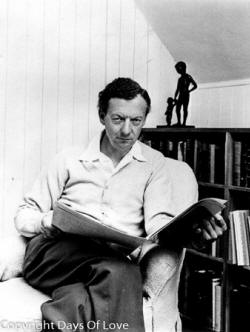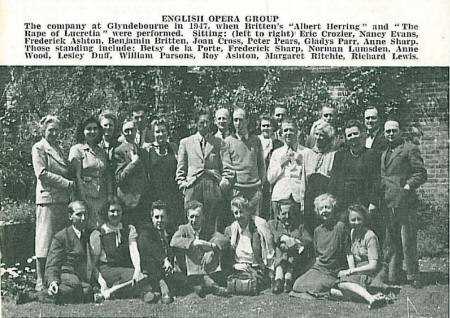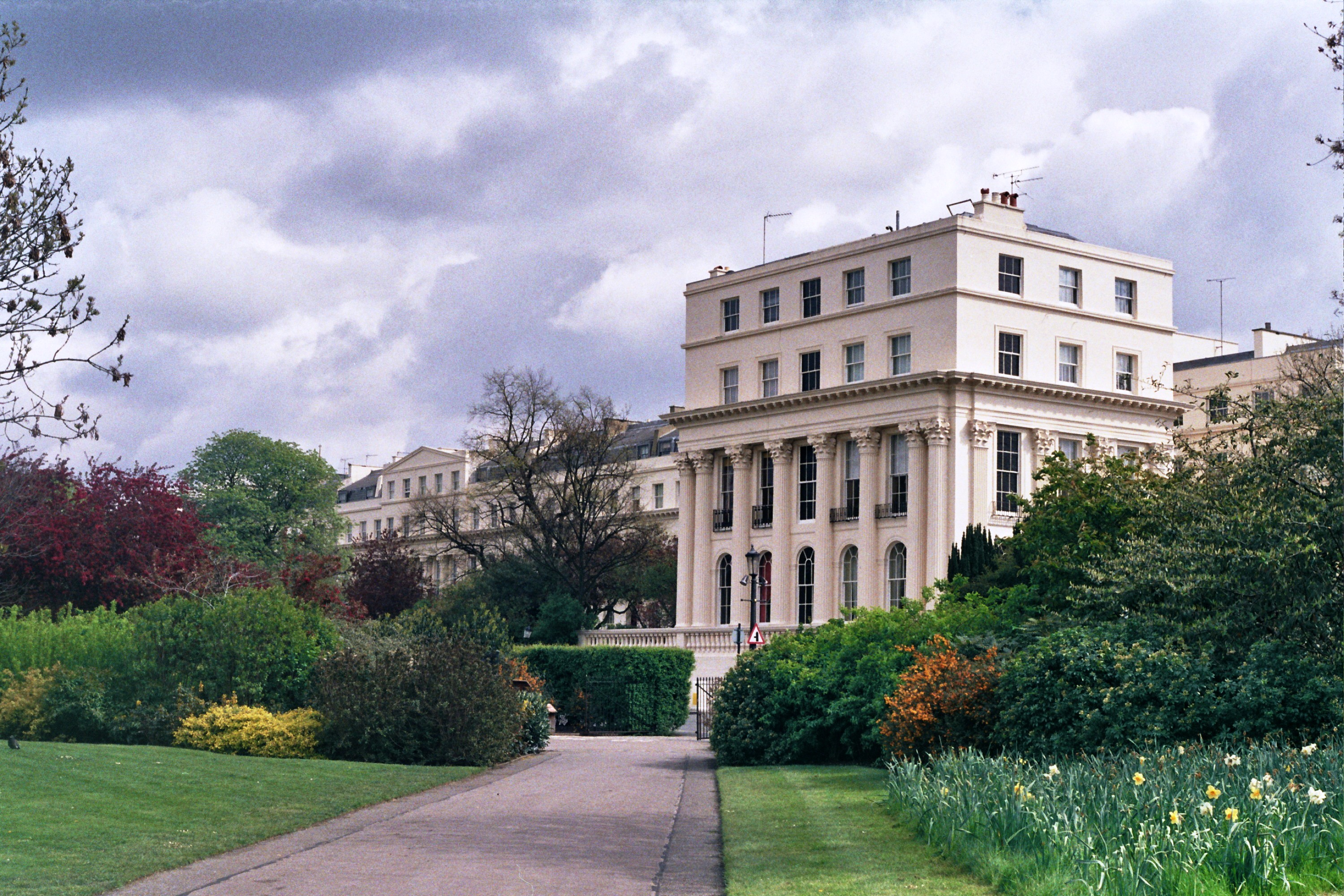

Partner Peter Pears
Queer Places:
21 Kirkley Cliff Rd, Lowestoft NR33 0DB, UK
Greshams School, Cromer Rd, Holt NR25 6EA, UK
Royal College of Music, Prince Consort Rd, Kensington, London SW7 2BS, UK
Burleigh House, 173 Cromwell Rd, Kensington, London SW5, UK
2 W Cottages, West End Ln, London NW6 1RJ, UK
559 Finchley Rd, London NW3 7BJ, UK
45A St John's Wood High St, London NW8 7NJ, UK
22 Melbury Rd, Kensington, London W14 8LT, UK
5 Chester Gate, London NW1 4JH, UK
59 Marlborough Pl, London NW8 0PT, UK
99 Offord Rd, London N1 1PG, UK
8 Halliford St, London N1 3HE, UK
Old Buckenham Hall, Brettenham Park, Ipswich IP7 7PH, UK
51 Prince's Square, London W2 4PX, UK
February House, 7 Middagh St, Brooklyn, NY 11201, Stati Uniti
38 Upper
Park Rd, London NW3, UK
43 Nevern Square, Kensington, London SW5 9PF, UK
67 Hallam St, Marylebone, London W1W, UK
104A Cheyne Walk, Chelsea, London SW10 0DQ, UK
3 Oxford Square, London W2 2PA, UK
Old Mill, Snape, Saxmundham IP17 1SH, UK
Crag House, 13 Crabbe St,
Aldeburgh IP15 5BW, UK
The Red House, Golf Ln, Aldeburgh IP15 5PZ, UK
Chapel House, Chapel Ln, Eye IP21 5ER, UK
St Peter and St Paul, Aldeburgh, UK
Westminster Abbey, 20 Deans Yd, Westminster, London SW1P 3PA, UK
 Edward
Benjamin Britten, Baron Britten OM CH (22 November 1913 – 4 December 1976)
was an English composer, conductor and pianist. He was a central figure of
20th-century British classical music, with a range of works including
opera, other vocal music, orchestral and chamber pieces. His best-known
works include the opera Peter Grimes (1945), the War Requiem
(1962) and the orchestral showpiece The Young Person's Guide to the
Orchestra (1945). At the National Theatre in late 2009
Nicholas Hytner
directed Alan Bennett's play The Habit
of Art, about the relationship between the poet
W. H. Auden and the composer
Benjamin Britten.
Edward
Benjamin Britten, Baron Britten OM CH (22 November 1913 – 4 December 1976)
was an English composer, conductor and pianist. He was a central figure of
20th-century British classical music, with a range of works including
opera, other vocal music, orchestral and chamber pieces. His best-known
works include the opera Peter Grimes (1945), the War Requiem
(1962) and the orchestral showpiece The Young Person's Guide to the
Orchestra (1945). At the National Theatre in late 2009
Nicholas Hytner
directed Alan Bennett's play The Habit
of Art, about the relationship between the poet
W. H. Auden and the composer
Benjamin Britten.
Born in Suffolk, the son of a dentist, Britten showed talent from an early age. He studied at the Royal College of Music in London and privately with the composer Frank Bridge. Britten first came to public attention with the a cappella choral work A Boy was Born in 1934. With the premiere of Peter Grimes in 1945, he leapt to international fame. Over the next 28 years, he wrote 14 more operas, establishing himself as one of the leading 20th-century composers in the genre. In addition to large-scale operas for Sadler's Wells and Covent Garden, he wrote "chamber operas" for small forces, suitable for performance in venues of modest size. Among the best known of these is The Turn of the Screw (1954). Recurring themes in his operas include the struggle of an outsider against a hostile society and the corruption of innocence.
Britten's other works range from orchestral to choral, solo vocal, chamber and instrumental as well as film music. He took a great interest in writing music for children and amateur performers, including the opera Noye's Fludde, a Missa Brevis, and the song collection Friday Afternoons. He often composed with particular performers in mind. His most frequent and important muse was his personal and professional partner, the tenor Peter Pears; others included Kathleen Ferrier, Jennifer Vyvyan, Janet Baker, Dennis Brain, Julian Bream, Dietrich Fischer-Dieskau and Mstislav Rostropovich. Britten was a celebrated pianist and conductor, performing many of his own works in concert and on record. He also performed and recorded works by others, such as Bach's Brandenburg concertos, Mozart symphonies, and song cycles by Schubert and Schumann.

Sir Michael Kemp Tippett; Benjamin Britten
by Erich Auerbach
bromide print, 1960
7 1/2in. x 6 1/2in. (191 mm x 164 mm)
Given by the Britten estate, 1981
Photographs Collection
NPG x15239


Chester Terrace, London, UK
Westminster Abbey, London
Together with Pears and the librettist and producer Eric Crozier, Britten founded the annual Aldeburgh Festival in 1948, and he was responsible for the creation of Snape Maltings concert hall in 1967. In his last year, he was the first composer to be given a life peerage.
Despite his large number of works on Christian themes, Britten has sometimes been thought of as agnostic.[132] Pears said that when they met in 1937 he was not sure whether or not Britten would have described himself as a Christian.[133] In the 1960s Britten called himself a dedicated Christian, though sympathetic to the radical views propounded by the Bishop of Woolwich in Honest to God.[134] Politically, Britten was on the left. He told Pears that he always voted either Liberal or Labour and could not imagine ever voting Conservative, but he was never a member of any party, except the Peace Pledge Union.[135]
Physically, Britten was never robust. He walked and swam regularly and kept himself as fit as he could, but Carpenter in his 1992 biography mentions 20 illnesses, a few of them minor but most fairly serious, suffered over the years by Britten before his final heart complaint developed.[136] Emotionally, according to some commentators, Britten never completely grew up, retaining in his outlook something of a child's view of the world.[56][137] He was not always confident that he was the genius others declared him to be, and though he was hypercritical of his own works, he was acutely, even aggressively sensitive to criticism from anybody else.[138]
Britten was, as he acknowledged, notorious for dumping friends and colleagues who either offended him or ceased to be of use – his "corpses".[139] The conductor Sir Charles Mackerras believed that the term was invented by Lord Harewood. Both Mackerras and Harewood joined the list of corpses, the former for joking that the number of boys in Noye's Fludde must have been a delight to the composer, and the latter for an extramarital affair and subsequent divorce from Lady Harewood, which shocked the puritanical Britten.[140] Among other corpses were his librettists Montagu Slater and Eric Crozier. The latter said in 1949, "He has sometimes told me, jokingly, that one day I would join the ranks of his 'corpses' and I have always recognized that any ordinary person must soon outlive his usefulness to such a great creative artist as Ben."[139] Dame Janet Baker said in 1981, "I think he was quite entitled to take what he wanted from others ... He did not want to hurt anyone, but the task in hand was more important than anything or anybody."[141] Matthews feels that this aspect of Britten has been exaggerated, and he observes that the composer sustained many deep friendships to the end of his life.[142]
Charles Mackerras, who was working as the musical director on Benjamin Britten’s Noye’s Fludde (1958), made a disparaging remark to John Cranko about the number of boys in the piece. Cranko, who was homosexual himself, passed on the remark to Britten. (Cranko explained: ‘When suddenly you hear something like that, however long you may have worked together, suddenly you hate that person.’) Disgruntled at having thus been betrayed to the maestro, Mackerras conjured up the usual spectre: John Cranko ‘was a homosexual, and I’m not, and there is a sort of Freemasonry among them’.
Britten died of congestive heart failure on 4 December 1976. His funeral service was held at Aldeburgh Parish Church three days later,[128] and he was buried in its churchyard, with a gravestone carved by Reynolds Stone.[129] The authorities at Westminster Abbey had offered burial there, but Britten had made it clear that he wished his grave to be side by side with that, in due course, of Pears.[130] A memorial service was held at the Abbey on 10 March 1977, at which the congregation was headed by Queen Elizabeth The Queen Mother.[131]
My published books: